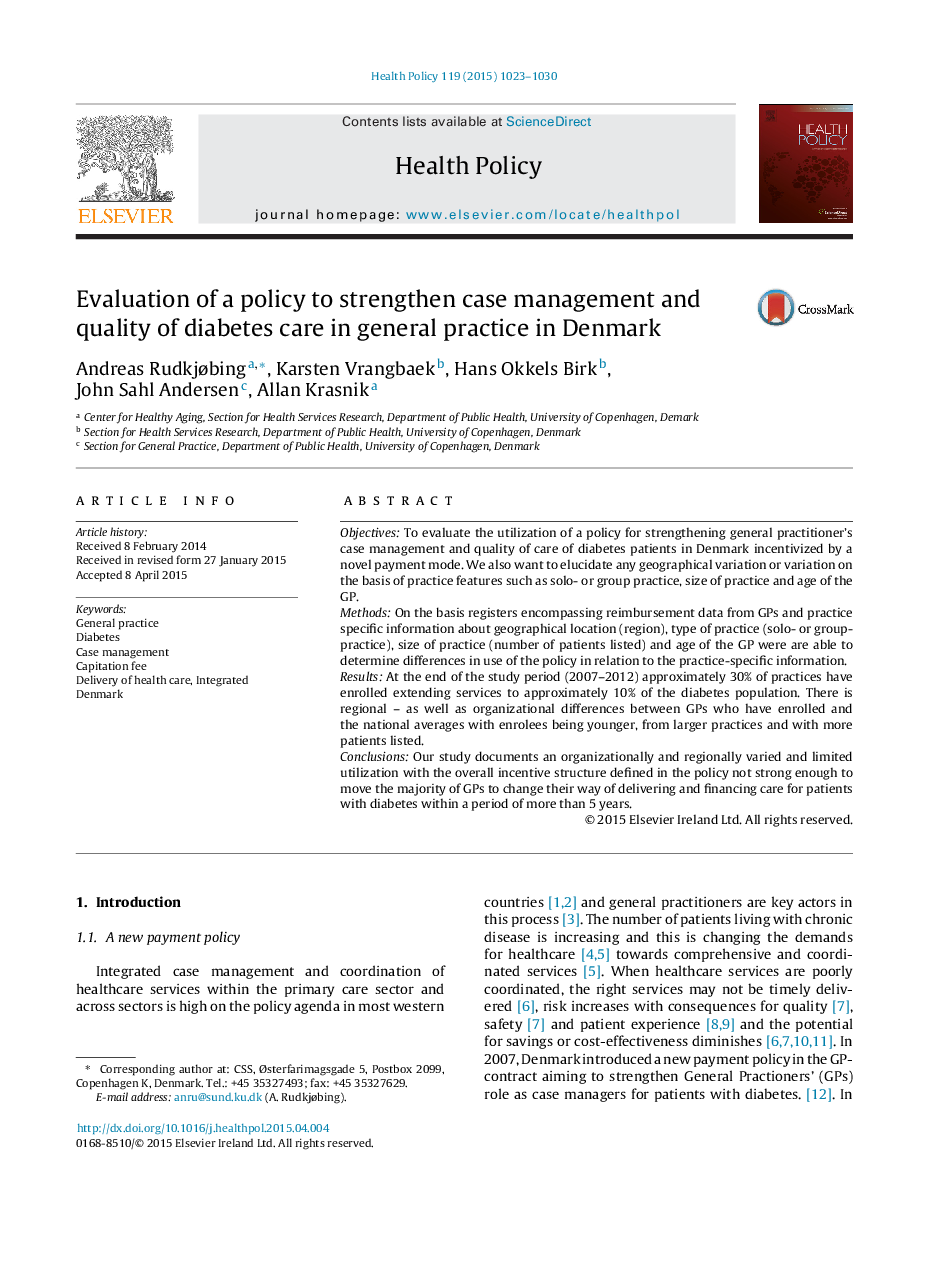| Article ID | Journal | Published Year | Pages | File Type |
|---|---|---|---|---|
| 6239397 | Health Policy | 2015 | 8 Pages |
â¢We examine a policy for strengthening case management and quality of diabetes care in general practice incentivized by novel payment mode.â¢We found limited and geographically and organizationally varied use of the policy.â¢Less solo practices than group practices use the policy.â¢Younger GPs and larger practices are more likely to use the new policy.
ObjectivesTo evaluate the utilization of a policy for strengthening general practitioner's case management and quality of care of diabetes patients in Denmark incentivized by a novel payment mode. We also want to elucidate any geographical variation or variation on the basis of practice features such as solo- or group practice, size of practice and age of the GP.MethodsOn the basis registers encompassing reimbursement data from GPs and practice specific information about geographical location (region), type of practice (solo- or group-practice), size of practice (number of patients listed) and age of the GP were are able to determine differences in use of the policy in relation to the practice-specific information.ResultsAt the end of the study period (2007-2012) approximately 30% of practices have enrolled extending services to approximately 10% of the diabetes population. There is regional - as well as organizational differences between GPs who have enrolled and the national averages with enrolees being younger, from larger practices and with more patients listed.ConclusionsOur study documents an organizationally and regionally varied and limited utilization with the overall incentive structure defined in the policy not strong enough to move the majority of GPs to change their way of delivering and financing care for patients with diabetes within a period of more than 5 years.
